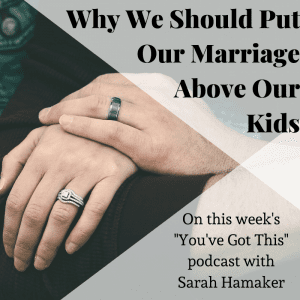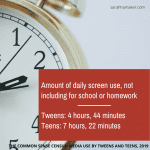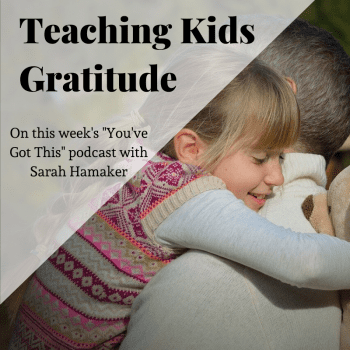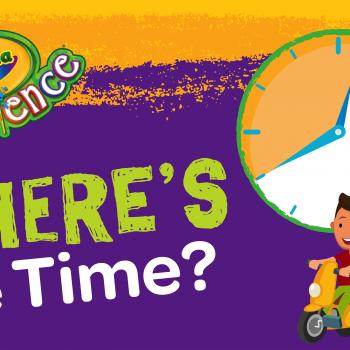 The following is an excerpt from my interview with Shlomo and Rivka Slatkin on my podcast, “You’ve Got This.”
The following is an excerpt from my interview with Shlomo and Rivka Slatkin on my podcast, “You’ve Got This.”
Rabbi Shlomo Slatkin is a relationship expert who has helped thousands of couples repair their broken marriages. Together with his wife, Rivka, he is the founder of The Marriage Restoration Project, a global initiative to help keep couples together and happy. Shlomo is a licensed clinical professional counselor, a certified Imago Relationship therapist, a rabbi, and a father of five. He is an advanced clinician in Imago Therapy and workshop presenter. He is also the author of The 5 Step Action Plan to a Happy & Healthy Marriage, which is the introduction to his marriage counseling approach, with its foundational basics, and its short, transformational benefits. The 5 Step Action Plan Book has been featured on CNN, NPR, Fox News, Huffington Post and Psychology Today.
Many times, we focus on all the things we need to do as parents. Especially when the baby is little, we have to keep him/her alive because babies can’t do anything themselves. Sometimes that’s when our focus on our marriages can start to slide. Then as you add in more children and all the schooling, activities and things like that, I think marriages can really get lost in parenting. Have you found that to be true?
Rivka: Absolutely.
Shlomo: We can be so busy that when the day is over, we’re so exhausted. Parents don’t really have time for each other or they don’t make time for each other.
 That is the key—to make that a priority in our life and most of the time, we forget why that’s important.
That is the key—to make that a priority in our life and most of the time, we forget why that’s important.
Rivka: It’s really hard especially for moms because it’s hard to put our own needs first and the kids are kind of like the squeaky wheels—so they get the grease. It’s easy to really neglect ourselves and our adult relationship with each other. And at the same time, if we do not forget about that most important relationship, then many of the smaller stressful symptoms of raising kids will go away. If you deal with the foundation and the foundation itself, then all the other little things become less pronounced.
I love that you said the marriage is the foundation because that’s really where this all started. Most of us get married, then we have children. But it’s like the children come and we’re like “Oh, yeah, we were married.” It’s not healthy for our kids too. Our kids need to know that their parents have a good marriage.
Shlomo: It’s really important for many different reasons but just in general, kids have really good antennas. They know if things aren’t really stable in a relationship or the parents don’t feel connected. They don’t know how to articulate that but you can even tell in their behavior that kids really thrive on structure and stability. If you don’t have that as a couple, the kids will pick up on it and then they’ll make your life more difficult.
I think also to that when the kids can see that we have a good marriage, it also takes the pressure off of them. They can just be kids because we’re not looking to them to fulfill anything that we would look to our spouse to fulfill.
Rivka: Our 16-year-old knows when we’re getting a little bit low on time together and she’ll say, “You, guys need to go out.” She wants us to because she knows we’ll come back in such a better mood if we’ve had time together.
She sounds like my 16-year-old who says the same thing. That’s a healthy thing. We feel so much better when we’ve had a night away from the kids. Why is this so hard? Why in general is it so hard for us today to kind of step away enough to have that focus on our marriage?
Shlomo: In our model of therapy, we describe the three stages of relationship that marriage starts off in their romantic stage and then it hits what we call the “power struggle.” Sometimes when we have kids, we distract ourselves from that. It’s an easy way to have a more enjoyable life and not have to deal with the difficulties with our spouse. I think for a lot of us, it’s hard to be in a relationship because it takes commitment and understanding and it’s just easier to distract ourselves with the kids and be busy so that we don’t even have time for each other.
I don’t want to look at my husband when my last child goes off to college and go, “Who are you?” I want to look at them and go, “Okay, now, what are we going to do?”
Rivka: Sometimes people don’t even know who they themselves are when the kids grow up because we just spend so many years on every possible need that they have. I think it’s important to nurture ourselves throughout the parenting process so we don’t forget who we are, and then we can be a better partner as well.
For our listeners who may be going, “Yeah, I hear myself in this,” what are some of kind of easy things for them to do to kind of stick it on that path to restoring their marriage even with young kids in the home?
Shlomo: Part of it is making that time to go away, having a stand-in babysitter, having a date night. It sounds like simple things but if you really want anything to happen, you have to schedule them, making sure it’s a priority. Having that time to have fun together, having time to be able to go away, and then also incorporating other rituals into your relationship. One thing that I teach couples is appreciations dialogue process, so to be able to spend five minutes each day just looking into each other’s eyes and sharing one thing they appreciate about each other and why they appreciate it. It helps them stay connected and have these positive moments.
Those are things that every couple can do. For couples that are struggling, we find it’s beneficial to get a little bit more clarity on the issues that are happening and learning how to be able to more effectively communicate with each other. That will not only help the couple as a married unit, but it will also help them be better in every relationship, including with their kids.
Some listening to this may go, “I can’t find five minutes a day to look in my spouse’s eyes and say what I appreciate.” We have always been a big advocate of putting our kids to bed fairly early so that we have that time, even though they’re not necessarily tired because I think we just tend to keep our kids around us way too long. Especially when they’re little, everyone’s just tired and cranky, right? And so, who has the energy for that?
Rivka: We’re big fans of early bedtime. We absolutely want our kids in their rooms when it’s reasonable because we need that adult just time to talk and have a normal conversation without lots of little voices all around grapping for our time and attention.
Shlomo: It does get challenging as the kids get older and you realize they don’t want to go to bed at 6 o’clock. That makes it even more important to schedule time to get out of the house or have a babysitter so that you can really get away and spend some time together.
Rivka: We just keep things really simple. We don’t have the kids signed up for lots and lots of extracurricular things because then I will be more stressed out running carpools to and from a million different activities. I find simplicity as key because it really is hard raising kids these days. There’s just so many challenges, and it helps to keep things simple and just get back to basics. We don’t live in villages anymore where people all around us can help raise the kids, and I think that’s hard on all of our little families.
Our families can kind of get lost in our busyness. We can lose sight of the fact that family is important, and our marriage is important as center of that as well.
Rivka: I think our kids know by now that we are each other’s best friends. I’m not sure how they know that exactly. Maybe just through modeling it, like we haven’t explicitly said that, but they know just from looking at us and they just know that we are.
Shlomo: We’re not running out with friends all the time and distracting ourselves from when we have a chance to be without our kids. We prefer to spend time with each other.
Rivka: The kids know that we’re a unified front, which is just super important because kids want to sometimes get an answer from mommy and then they get an answer from daddy.
I think it’s important how we talk about our spouse to our kids. There are times when I don’t agree with what my husband’s done, but we have that unified front, so I’m going to support him in that. I also need to respect him in the way that I talk about the decision because my kids may come to me and complain, “Well, dad didn’t let me do this.” I’m like, “Well, yeah, and your father’s right. That was his decision to make and I’m supporting him with that.”
Rivka: That’s a good point, just making sure the way you speak about your spouse is respectful in front of the kids.
Shlomo: And not undermining the other parent.
Part of why a good marriage is essential for parenting is that we want to model what a good marriage looks like for our kids.
Shlomo: That’s one of the most important things you can do is show them a healthy relationship because there’s so many relationships today that are surely not healthy and people just kind of pass on their dysfunctions from generation to the other. I see a lot of people coming for help and many of them come from a broken home. It’s so painful to see what they had to grow up with and they see how they’re repeating it in their own relationship. The more that you can work on it and model for your kids, it’s the most amazing gift that they can possibly give as a parent.
What are some of the fun things that you like to do as a couple that you don’t do with your kids? I’ll share one real quick before you two share. We used to buy really good ice cream and eat it when the kids were bed. Sometimes they would find the bowl in the sink and they’re like, “You had ice cream?” And we’re like, “Oh, yeah.”
Shlomo: We’ve done that a few times.
Rivka: We do that a lot. We buy ourselves treats and have it after they go to bed. It’s a lot of fun. It’s the little things in life like that, like a chocolate bar that we’re sharing, just the two of us. There’s so many things. Some cost money, some don’t. We like doing relaxing things together. It’s funny, like last week we knew we needed a date and I happen to drive by this Chinese foot massage place, so we went and we both got a foot massage, and we enjoyed that. That was fun. There are little homey things we can do too that don’t cost a lot of money, even just taking a walk around the block when the kids are asleep or sitting outside. We do love going away when we get the opportunity. That’s like a couple times a year, maybe for a night.
Shlomo: I think it helps that the more that you can be a good spouse and communicate effectively and accept your spouse and be less triggered by your spouse, a better parent you can be as well because it’s the kind of skills that apply to a marriage, apply to a parent-child relationship as well.
To hear more great advice and stories from Shlomo and Rivka, listen to “Why We Should Put Our Marriage Above Our Kids” on the “You’ve Got This” podcast.












